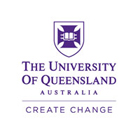- News and articles
- Find usIDP AustraliaIDP BahrainIDP BangladeshIDP CambodiaIDP CanadaIDP ChinaIDP EgyptIDP GhanaIDP Hong KongIDP IndiaIDP IndonesiaIDP IranIDP JordanIDP KenyaIDP KoreaIDP KuwaitIDP LebanonIDP MalaysiaIDP MauritiusIDP Middle EastIDP NepalIDP New ZealandIDP NigeriaIDP OmanIDP PakistanIDP PhilippinesIDP Saudi ArabiaIDP SingaporeIDP Sri LankaIDP Taiwan, ChinaIDP ThailandIDP TurkeyIDP UAEIDP VietnamIDP Corporate
- Social
- English
- Where we operate
- Courses
- Scholarships
- IELTS
- About IDP
- Student Essentials
- News and articles
- Find us
- Find us
- Find nearest IDP offices
- IDP Australia
- IDP Bahrain
- IDP Bangladesh
- IDP Cambodia
- IDP Canada
- IDP China
- IDP Egypt
- IDP Ghana
- IDP Hong Kong
- IDP India
- IDP Indonesia
- IDP Iran
- IDP Jordan
- IDP Kenya
- IDP Korea
- IDP Kuwait
- IDP Lebanon
- IDP Malaysia
- IDP Mauritius
- IDP Middle East
- IDP Nepal
- IDP New Zealand
- IDP Nigeria
- IDP Oman
- IDP Pakistan
- IDP Philippines
- IDP Saudi Arabia
- IDP Singapore
- IDP Sri Lanka
- IDP Taiwan, China
- IDP Thailand
- IDP Turkey
- IDP UAE
- IDP Vietnam
- IDP Corporate
- Social
- Language Switcher
- IDP Education /
- Colleges and Universities /
- Australia /
- The University of Queensland /
- Bachelors of Journalism and...

Bachelors of Journalism and Bachelor of Arts - History [Extended Major]
At THE UNIVERSITY OF QUEENSLAND

Location
Australia
Qualification
Dual Degree
Fees
AUD41120
(2025)
Duration
4 Year(s)
Next intake
14 July 2025
Entry Score
6.5
IELTSCourse info
History examines the way social, political, cultural and economic drivers develop and change over time. Looking to the past provides an essential tool for understanding the present. An Extended Major in History allows you maximum choice from our rich and exciting offerings in European, Asian and Australian histories, spanning from the medieval world right through to contemporary studies. Geographically, courses in the major cover Germany, Britain, China, Japan, Southeast Asia, Australia, and others. Thematic courses cover big ideas including war, witchcraft, sexuality, urban life and genocide. Studying History develops high level research skills, critical thinking, and excellent communication skills. In the final year of study, History offers opportunities for work-integrated learning at museums, libraries, and heritage sites.
- Scholarships View all scholarships
- Internships
Entry requirements for The University of Queensland
International Baccalaureate Diploma - 29
IELTS overall 6.5, reading 6, writing 6, speaking 6, listening 6. For other English Language Proficiency Tests and Scores approved for UQ
TOEFL IBT - Overall 87, listening 19, reading 19, writing 21 and speaking 19.
Application Deadline
The application deadline isn't available Speak to an IDP counsellor for more detailed information
Further information
If you aren't eligible for the above entry requirements, you might ant to explore pathway options at The University of Queensland. If you want to find out more, speak to our counsellors.
THE World Ranking
77th / 1250
THE World RankingWhat our students think
We’ve haven’t received any reviews for this institution yet.
Recommended for you
- THE World Ranking:61
- Dual Degree
- THE UNIVERSITY OF SYDNEY , Australia
- Next intake:02/2026
- Entry Score: IELTS 7.5
- AUD52000 (2025)
- THE World Ranking:61
- Dual Degree
- THE UNIVERSITY OF SYDNEY , Australia
- Next intake:02/2026
- Entry Score: IELTS 7.5
- AUD52000 (2025)
- THE World Ranking:401
- Bachelor Degree
- Murdoch , Australia
- Next intake:07/2025
- Entry Score: IELTS 7.5
- AUD26834 (2025)
- THE World Ranking:301
- Bachelor Degree
- SOUTHPORT , Australia
- Next intake:07/2025
- Entry Score: IELTS 7.5
- AUD34000 (2025)
- THE World Ranking:77
- Dual Degree
- BRISBANE , Australia
- Next intake:02/2026
- Entry Score: IELTS 7.5
- AUD35360 (2025)
- THE World Ranking:251
- Bachelor Degree
- BENTLEY , Australia
- Next intake:07/2025
- Entry Score: IELTS 7.5
- AUD35660 (2025)
- THE World Ranking:61
- Dual Degree
- THE UNIVERSITY OF SYDNEY , Australia
- Next intake:02/2026
- Entry Score: IELTS 7.5
- AUD52000 (2025)
- THE World Ranking:61
- Dual Degree
- THE UNIVERSITY OF SYDNEY , Australia
- Next intake:02/2026
- Entry Score: IELTS 7.5
- AUD52000 (2025)
Your action plan
Step 1
Shortlist your courses
Choose the best three courses you’re most likely to pursue.
Step 2
Check your eligibility
Get an instant in-principle offer for courses with the IDP FastLane tag.
Step 3
Apply through IDP Live
Fill out the form once and use it to apply to multiple courses.
How does IDP FastLane work?
With the FastLane 'Offer in Principle', you'll know in minutes if you'll be accepted!
Select an institution and course
Create your academic profile
Submit your application for an 'Offer in Principle'
Your chosen institution(s) will send you a decision in minutes!
Get ready to apply with an expert counsellor




